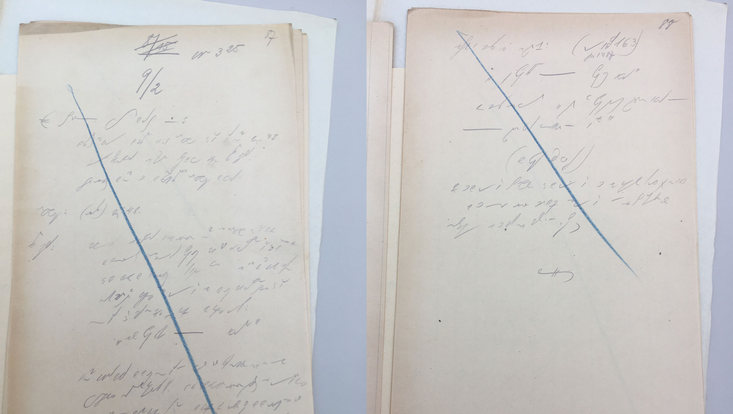Parliamentary Shorthand Writing as Material and Political Practice
2019–2023
RFC05

During the 19th century, a new form of written artefacts rapidly grew in popularity in Europe: manuscripts written in shorthand. From the beginning, shorthand was more than a graphic notation system, as it implied a wide range of concomitant changes in writing materials, writing postures, and the storage of writings. Shorthand writing swiftly turned into an indispensable tool for recording parliamentary debates. At the same time, the technical details and conceptual implications of shorthand protocolling political affairs remained contested throughout the 19th century. This debate centred on the materiality of handwriting and it forms a crucial part of the wider changes in political culture towards ‘parliamentarism’ and ‘liberalism’. This project investigates the material culture and political impact of shorthand manuscript cultures as they developed in German Parliaments in the decades between 1819 (first stenographed debate in Germany, Bavaria) and the early 1930s (introduction of the Deutsche Einheitskurzschrift). Thus, it prepares materials for future research, such as comparing the development of shorthand writing in the political sphere to the equally important, yet slightly later rise of shorthand in the modern office.
Within research field C Creating Originals, this study of shorthand writing tackles the competition between immediate shorthand records and longhand versions for the status of the original. While the material object that resulted from shorthand protocolling – a shorthand manuscript – was undoubtedly the most direct (and, one might think, most ‘original’) material trace of the oral debate, officials did not consider it the original. What came to be known as ‘original’ protocols of Parliamentary debates were the longhand versions based on shorthand records revised, compiled, and altered into an authoritative record. Furthermore, where a secondary version became the most authentic record of parliamentary debates, this sparked debates about reliability that draw political frictions in sharp contours. Eventually, shorthand writing as a new material form of handwriting enabled a new form of transmitting information and authenticating processes of political decision-making. The project demonstrates how specific manuscripts cultures emerged in conjunction with political and social changes.
People
Project lead: Markus Friedrich
Research Associate: Hannah Boedekker
